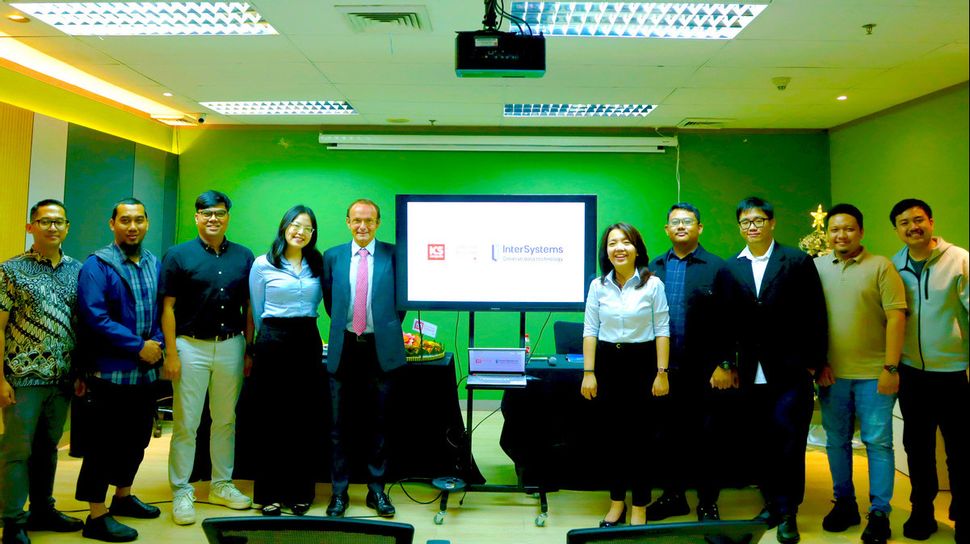The Need for Interoperability in Indonesia’s Health System
Indonesia’s healthcare system has made significant digital strides in recent years, but challenges remain in achieving healthcare data interoperability. Patient data is often scattered across hospitals, clinics, and laboratories, making it difficult to access comprehensive health records in real-time. This fragmentation slows down diagnosis, increases costs, and sometimes even leads to medical errors.
Enter InterSystems and ICS Compute—a new partnership aiming to solve Indonesia’s data fragmentation issues. The two technology firms are collaborating to offer interoperability solutions that allow seamless communication and exchange of healthcare data between various providers. This initiative not only aligns with Indonesia’s national digital transformation agenda but also brings the country one step closer to a patient-centered, tech-driven health ecosystem.
What Is Healthcare Data Interoperability?
At its core, healthcare data interoperability is the ability of different information systems, devices, or applications to access, exchange, and cooperatively use data in a coordinated manner. It's essential for integrating services such as Electronic Health Records (EHR), telemedicine platforms, diagnostic tools, and administrative databases.
In practice, this means a patient's medical history from a clinic in Surabaya could instantly be accessible by a cardiologist in Jakarta, enabling better care coordination. It also facilitates public health monitoring, research, and more accurate policy-making.
In a country like Indonesia—an archipelago with over 17,000 islands and hundreds of public and private healthcare institutions—interoperability is a game changer.
InterSystems and ICS Compute: A Strategic Collaboration
The collaboration between InterSystems and ICS Compute is rooted in a shared vision of digital healthcare transformation. InterSystems, a global leader in data platforms for healthcare, offers proven interoperability solutions widely used in Europe and the United States. Their flagship product, HealthShare, enables integrated care by connecting disparate health systems.
ICS Compute, a leading Indonesian cloud and IT services company, adds local expertise and infrastructure support. Their deep understanding of Indonesia’s regulatory environment and technical landscape makes them an ideal implementation partner.
Together, they plan to offer end-to-end data interoperability services—from integration and security to compliance and performance optimization. The solution is expected to be scalable, adaptable to different healthcare environments, and fully compliant with Indonesia’s evolving health data regulations.
Use Cases and Benefits
Several use cases stand to benefit immediately from this initiative:
1. Hospital-to-Hospital Data Exchange
Patients often receive care across multiple facilities. With interoperability, lab results, radiology scans, and treatment notes can follow them—improving care continuity and reducing duplication.
2. Public Health Surveillance
A real-time flow of anonymized health data allows the government to monitor outbreaks, vaccination rates, and chronic disease patterns. This enables faster, more accurate public health responses.
3. Insurance and Claims Management
Payers can instantly verify medical services and patient eligibility, speeding up the claim approval process and reducing fraud.
4. Patient Empowerment
With access to consolidated health records via apps or portals, patients become active participants in managing their health. This enhances trust, engagement, and health literacy.
Regulatory and Policy Landscape
Indonesia's Ministry of Health has laid out a strong vision for digital transformation through initiatives like SATUSEHAT—a national platform that encourages standardization and integration of healthcare data. However, private sector involvement is crucial to scale the effort and build long-term infrastructure.
InterSystems and ICS Compute’s solution is expected to align with SATUSEHAT standards, offering secure APIs, data protection, and standardized HL7 FHIR-based integration protocols. The move is also in line with Presidential Regulation No. 39/2019 on One Data Indonesia, reinforcing the strategic importance of interoperability in public services.
The Role of Cloud and AI
Beyond mere connectivity, the solution will likely tap into cloud computing and artificial intelligence to improve performance and insights. Cloud-based storage allows real-time access across geographically dispersed facilities, while AI can analyze large data sets for predictive insights—such as identifying patients at risk of stroke or heart failure.
ICS Compute’s cloud expertise ensures the deployment is robust, while InterSystems brings in the logic for intelligent data orchestration. It’s a synergy designed not just to digitize data, but to make it actionable.
Challenges Ahead
Of course, the journey won’t be without hurdles. Key challenges include:
- Data standardization: Not all hospitals use the same format or coding systems.
- Security concerns: Patient privacy must be maintained at all times.
- Infrastructure disparity: Rural clinics may lack the bandwidth or IT support.
- Human resources: Training medical staff to use new systems takes time and investment.
However, the long-term benefits clearly outweigh the costs. As Indonesia looks to build a more resilient and responsive healthcare system, healthcare data interoperability is no longer optional—it’s essential.
Conclusion: A Promising Step Forward
Indonesia’s healthcare sector is undergoing a digital revolution, and healthcare data interoperability lies at the heart of this transformation. The partnership between InterSystems and ICS Compute reflects a broader trend of tech-health convergence, where global expertise meets local insight.
By enabling secure, seamless, and standardized health data exchange, the collaboration promises to not only improve patient outcomes but also support the nation’s goals of universal health coverage and smarter public health governance.
As adoption scales and more institutions come onboard, Indonesia could very well emerge as a leader in digital health innovation across Southeast Asia.
Read More






 Thursday, 05-02-26
Thursday, 05-02-26







